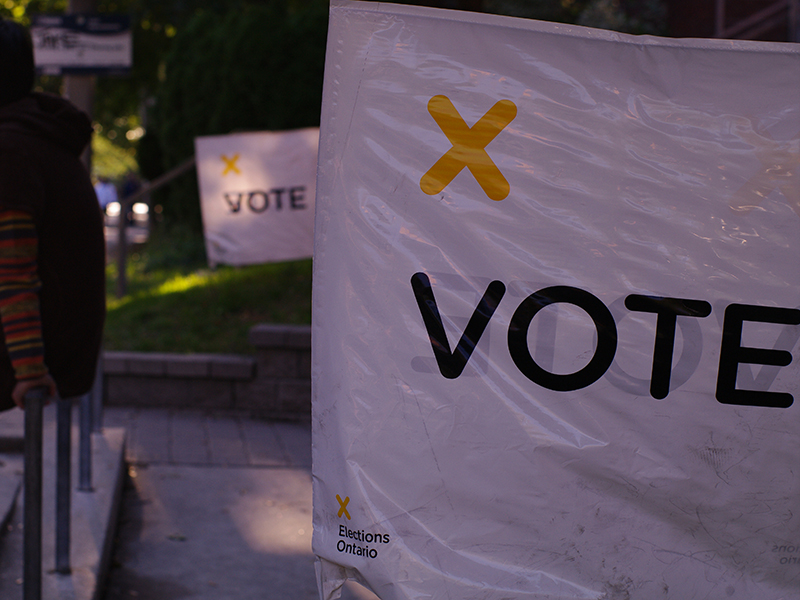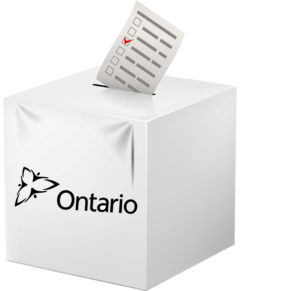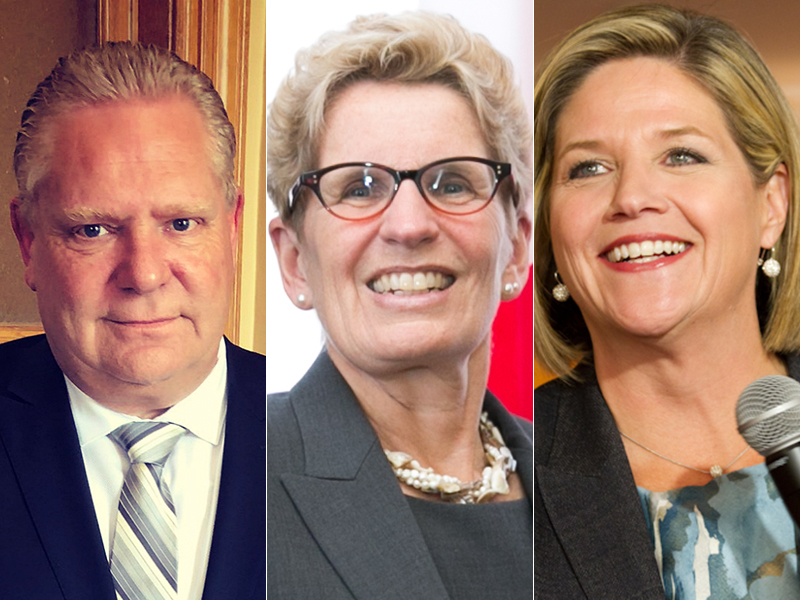When Rob Goldstein found out that the Ontario Progressive Conservative party elected Doug Ford as its leader, the first thing he did was call up the party office and renounce his membership.
Goldstein isn’t a die-hard conservative – he never voted for former prime minister Stephen Harper, but has also long resented the Ontario Liberals. The only thing this downtown Toronto small-business owner knew was that he didn’t want Ford in office.
“His campaign is a joke,” Goldstein says. “It’s completely fiscally irresponsible.”
But without the Tories, Goldstein is struggling to find a politician to support. He’s hoping Andrea Horwath’s NDPs will do something to impress him in the next few weeks.
READ: CANADA’S RELATIONSHIP WITH ISRAEL MOST IMPORTANT ISSUE FOR JEWISH VOTERS
“There are definitely no good options,” he says.
Goldstein may be in for disappointment when Ontario heads to the polls on June 7. According to the CBC’s poll tracker, Ford is currently on track to lead the PCs to victory, with a nearly 90 per cent chance of winning a majority government, while the NDP has recently overtaken Kathleen Wynne’s Liberals to position themselves as the official opposition.
Goldstein notwithstanding, whether Ontario’s Jewish population will join Ford Nation remains to be seen.
Canadian Jewish voting patterns have historically skewed Liberal. As a persecuted minority, many Jewish immigrants valued workers’ rights and social justice, so the centre-left party seemed like a natural fit.

Harper famously changed that after being elected prime minister. In the 2006 federal election, just 20 per cent of Jewish voters sided with the Conservatives, a number that was in keeping with previous decades. But by 2011, that skyrocketed to roughly 50 per cent.
That kind of growth is “insane,” according to Jason VandenBeukel, a PhD candidate at the University of Toronto, whose work focuses on how Canadian political parties target voters with foreign-policy appeals.
“You don’t see jumps like that in recent Canadian history among groups,” he says. “It’s wildly disproportionate.”
Since then, conventional wisdom has dictated that the “Jewish vote” leans to the right, firmly aligning Zionism with right-wing politics.
There are definitely no good options.
– Rob Goldstein
But Israel is a federal issue and three of the four most heavily Jewish provincial ridings in the Greater Toronto Area – York Centre, Eglinton-Lawrence and Willowdale – remained Liberal strongholds throughout Harper’s decade-or-so in power, indicating that Jewish voters don’t necessarily vote for the same parties on the federal and provincial levels. (The lone exception was Thornhill, which has been Tory blue since 2007, although Gila Martow only won that riding by fewer than 100 votes in Ontario’s 2014 election.)
In the absence of a political focal point such as the Middle East, some believe Judaism will play a negligible role in the upcoming Ontario election.
“I don’t think in this provincial election there will be a ‘Jewish vote’ – I think there will be many Jews who vote,” says Myer Siemiatycki, a politics professor at Ryerson University. “The vote of Jews is going to be up for grabs.”
Siemiatycki believes Ontario’s Jewish population will resist cultural pandering and instead vote according to their personal beliefs around economics and social justice.
Jewish issues, however, are not altogether off the table. Between May 16 and 24, B’nai Brith Canada will host four debates in the ridings with the biggest Jewish populations in the GTA. The four major candidates from each riding will discuss the recent rise of hate crimes in Ontario, anti-Semitism on university campuses, affordable housing, the cost of Jewish education and accommodating people with disabilities.
 “These are all issues that we get asked a lot about,” says Aidan Fishman, the campus advocacy co-ordinator at B’nai Brith. “We’re responding to community demand to put these issues to candidates.”
“These are all issues that we get asked a lot about,” says Aidan Fishman, the campus advocacy co-ordinator at B’nai Brith. “We’re responding to community demand to put these issues to candidates.”
Fishman notes that one of their debates will be held at Chabad Flamingo, which was attacked just a few months ago, when a vandal was caught on tape hurling stones at its glass door and shattering it.
That attack was just one example of a rising trend across Canada, according to B’nai Brith’s latest audit of anti-Semitic incidents, which documented 1,752 incidents in 2017 – a record-setting number.
This is an area in which the provincial government needs to do more, according to Fishman. “We don’t think it’s being addressed properly,” he says.
But it’s unclear which party would do the most to combat hate crimes. Siemiatycki believes “alt-right” vandals “will take comfort by the election of Doug Ford.”
Daniel Bordman, the media co-ordinator for Mozuud, a right-leaning human-rights organization in Toronto, calls that prediction “nonsense.” Rather, he sees campus anti-Zionism as a much bigger threat to Ontario’s Jewish community.
Bordman will be proudly voting for Ford this June and believes that his promises about lower taxes and deregulation make good economic sense.
Besides, Bordman says, Ford’s divisive character may actually supercharge the province’s sleepy political climate.
“He’s such a bombastic jackass, the complete media hysteria around him will actually create some kind of debate around Ontario politics.”
